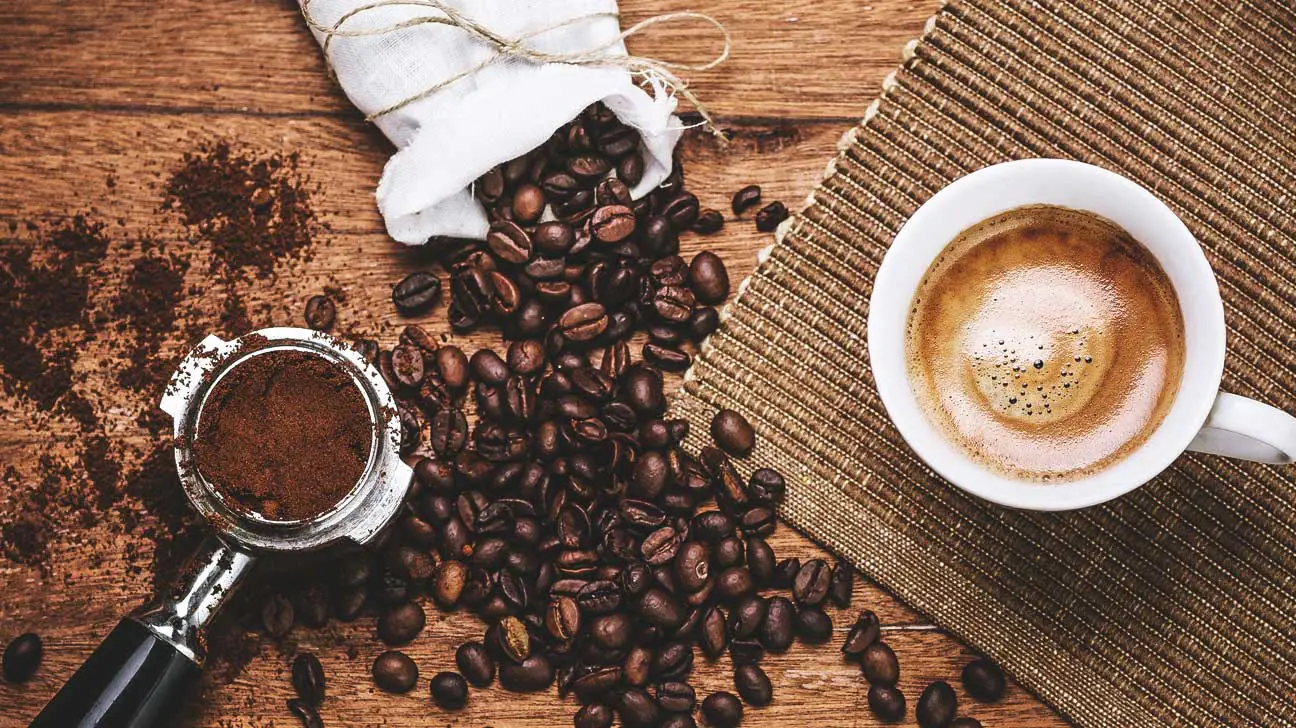The Health Benefits and Risks of Your Daily Dose
Almost everybody loves coffee, but does coffee love us back? Or is it really negatively affecting our well-being?
By Crissonna Tennison, UCLA
One of the most frequent arguments I have with my mother is not when I will get married or what I will do after college, but whether or not coffee is “bad for you.”
Unfortunately, a quick Google search does nothing to settle this debate; while I show up with articles such as “Coffee consumption and reduced risk of hepatocellular carcinoma,” and “Role of coffee in modulation of diabetes risk,” she opposes me with articles such as “Coffee drinking and cutaneous melanoma risk” and “Coffee consumption and risk of incident gout in women.”
Coffee is a social and cultural love, an identifying marker. Would Luke and Lorelai on “Gilmore Girls” have even met if it weren’t for Lorelai’s obsession with coffee? How many wonderful works of art would not have come about without the sacred bean? How many literary masterpieces would have missed the mark, or not been completed at all? In fact, how much of our world would be in shambles if it weren’t for coffee?

Some people like my mother would argue that, without caffeine dependency, none of this would be an issue because people would naturally have energy. Those are the kind of people that jump out of bed without hitting the snooze button at least once. That’s two beloved American traditions thrown out the window.
There’s too much information on the internet and in the world regarding whether or not coffee is healthy. How can something so relatively simple be such a flashpoint for doctors and families alike? Why is our beloved liquid so difficult to understand? The great paradox of doing research into whether coffee is actually healthy is the fact that it requires a high amount of coffee consumption to pick through the largely contradictory mountains of research and opinions.
And when I say opinions, I mean conspiracy theories. According to integritea.org, the positive health information regarding coffee is meant to distract and draw people away from tea. (“Big Brother” is mentioned several times in this article.) Some people also believe that Stieg Larsson, author of “The Girl With the Dragon Tattoo,” drank himself to death—drank coffee, that is. Book critic David Kamp points out the fact that coffee consumption is a prominent activity in the book, perhaps reflecting the author’s own habits.
Realistically, no health information is going to completely eradicate coffee from the vast majority of lives. (I mean, what are the alternatives? Tea? Water?) But what are the real risks, or benefits, of the daily ritual of coffee consumption?
Nutrients and Coffee
The good news: Coffee has a large amount of antioxidants and nutrients, such as magnesium and chromium.
The bad news: There have been no studies to determine the extent to which these antioxidants are actually absorbed by the body.

Pregnancy
The good news: Moderate coffee drinking (one to four cups daily) does not appear to affect pregnancy.
The bad news: Drinking large amounts of coffee (five or more cups daily) increases the likelihood of having a miscarriage.
Decreased Disease Risk
The good news: Higher amounts of coffee consumption are correlated with decreased likelihood of developing Type 2 diabetes, Parkinson’s disease, dementia, strokes, irregular heartbeat and liver disease.
The bad news: This does not account for causation. It is possible that the increased coffee consumption is just a coincidence, and that the subjects of these studies happen to have other health habits that decrease their risk factors for these diseases.
Neutral Disease Risk
The good news: Drinking coffee doesn’t increase your risk of developing osteoporosis, breast cancer, heart disease or hypertension.
The bad news: It doesn’t decrease your risk, either, and if you drink five or more cups a day, you could exacerbate preexisting heart disease or hypertension.
Depression and Anxiety
The good news: One to four cups of coffee daily decreases the risk of depression in healthy subjects and decreases symptoms in sufferers. This results from an increased sense of well-being and cognitive ability, which can help with anxiety symptoms as well.
The bad news: In high doses, depression can worsen due to disrupted sleep patterns and an increased dependency that can lead to stronger withdrawal symptoms if one doesn’t get their daily fix. High doses can also be dangerous for those who experience panic attacks.

Does Coffee Discriminate?
Sometimes it does. Coffee’s health benefits can vary depending on gender and personality differences. Estrogen plays a large role in coffee’s affects on men and women. For example, a 2004 study investigating the relationship between Parkinson’s disease and coffee revealed that postmenopausal women who drink around four cups of coffee a day but also take estrogen replacement therapy are more likely to develop Parkinson’s than men who drink the same amount. A 2011 study reports that when adolescent boys have a high amount of the hormone estradiol in their system, their blood pressure lowers in response to coffee, while high estradiol amounts in adolescent girls increases blood pressure.
In terms of personality, the jury is still out on whether coffee consumption is a bad idea for introverts. Some sources report that, since introverts are more easily over-stimulated, leading to reduced cognitive performance, they may not get the same productivity boost from caffeine that extroverts get. However, a 1999 study shows that introverts and extroverts report similar subjective experiences after drinking the brewed beverage, such as increased energy, focus and well-being.
It’s important and responsible to be aware of the health risks of any substance, but the fact of the matter is that coffee is one of the least harmful mood-enhancing substances many people will encounter. If it feels good, why stop? Don’t remove coffee’s magic by trying so hard to break it down.
Of course, moderation is key. If you drink five or more cups of coffee a day, no matter who you are, you are going to experience problems such as irritability, insomnia, stomach pain and nervousness. But because individuals have different caffeine thresholds, the key to making wise coffee decisions comes not so much with diligent internet research, but with an observation of your own experience.


















[…] his sophomore year of college, Matt Czarnecki entered a coffee shop on Yale’s campus for a coffee and a granola bar and left with a vision. Upon exiting the shop, he glanced at his receipt, which […]